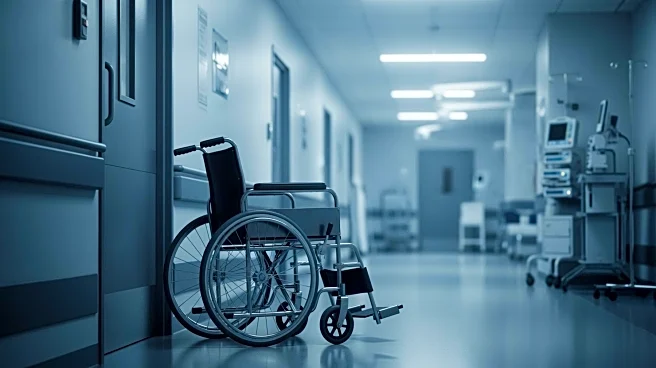What's Happening?
Israeli authorities are preparing to deport at least 89 Palestinian patients and their companions from Gaza who are currently receiving medical treatment in Jerusalem. These patients were evacuated before the onset of the war in Gaza two years ago. The World
Health Organization (WHO) reports that 94% of hospitals in Gaza have been damaged or destroyed, leaving many patients fearful of returning to the enclave. While most patients have agreed to return, some are being sent back against their will. The WHO has been requested by the Israeli military to assist in the transfer of these patients early next week.
Why It's Important?
The planned deportation of Palestinian patients highlights the ongoing humanitarian crisis in Gaza, where the healthcare infrastructure has been severely compromised. This move by Israel could exacerbate the already dire health situation for Palestinians, as the majority of hospitals in Gaza are non-operational. The deportation raises ethical concerns about the treatment of vulnerable populations in conflict zones and the responsibilities of occupying powers under international law. The decision could also impact diplomatic relations and fuel tensions between Israel and Palestinian authorities, as well as international organizations advocating for human rights.
What's Next?
The WHO's involvement in facilitating the transfer of patients suggests that international organizations may play a role in monitoring and potentially mediating the situation. The deportation could prompt reactions from Palestinian leaders, human rights groups, and international bodies, potentially leading to calls for intervention or policy changes. The situation may also influence future negotiations or discussions regarding humanitarian aid and healthcare support in Gaza.
Beyond the Headlines
The deportation of patients from Jerusalem to Gaza underscores broader issues of access to healthcare in conflict zones and the ethical responsibilities of nations in providing medical care to displaced populations. It raises questions about the long-term impact on the health and well-being of individuals affected by war and the role of international organizations in safeguarding human rights.
















